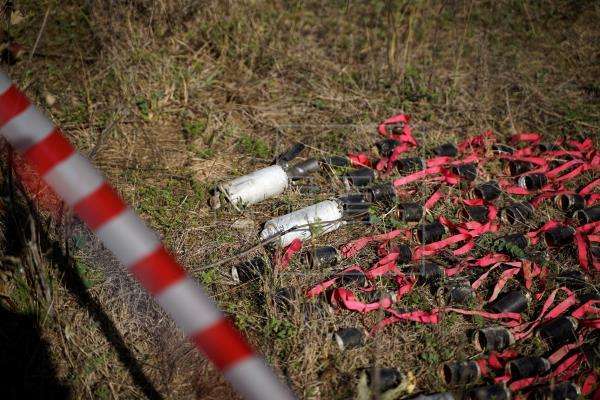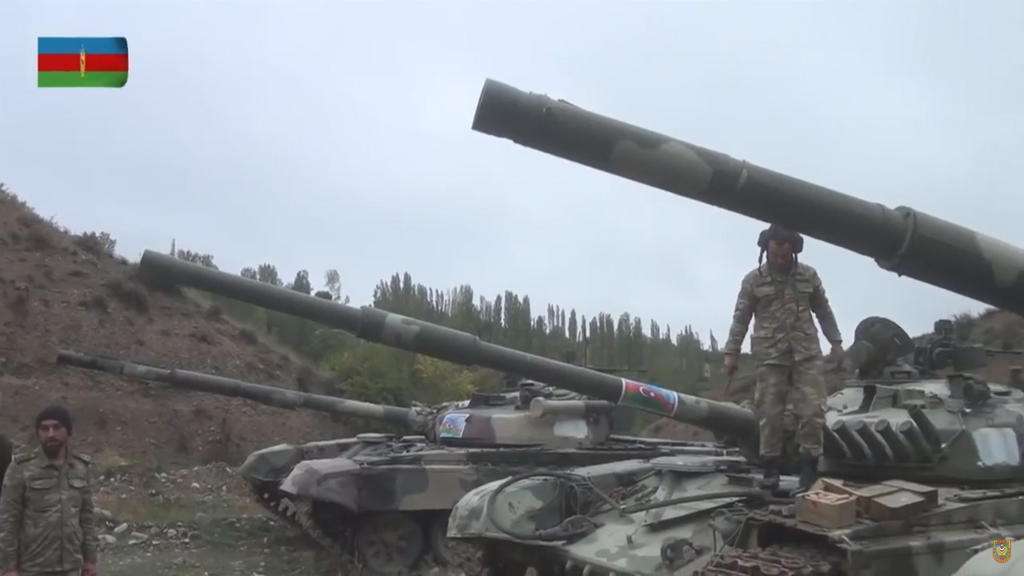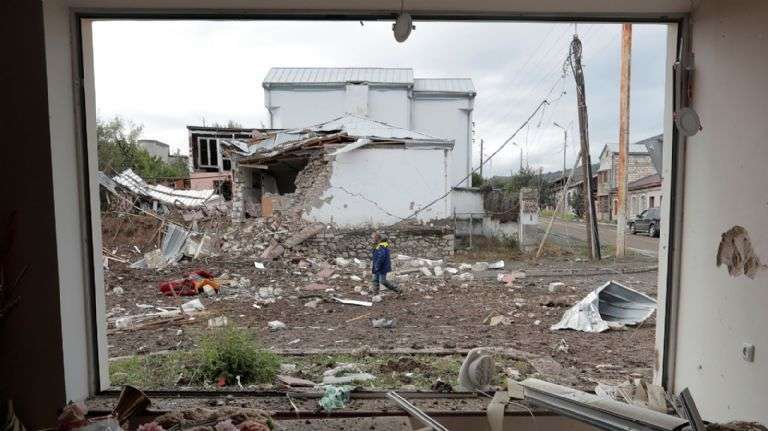The truce hangs by a thread in Nagorno-Karabakh

The truce hangs by a thread in the enclave of Nagorno-Karabakh, where Armenians and Azerbaijanis are unable to silence the guns in order to exchange prisoners of war and the bodies of those killed in battle.
"I do not believe in the truce. They continue to shoot as before. There is a reason we have been living in a shelter for more than two weeks," he told Efe Gamlet, 80.
His bomb shelter, which he shares with other elderly people, is full of nostalgia for the Soviet empire, as they miss the security of those days, even though Nagorno-Karabakh was under the control of the Soviet republic of Azerbaijan, despite being an enclave with an Armenian population.

Gamlet had hoped to surface, but every time he did, the siren sounded and he started again. Yet he does not want to be evacuated. "We'll stay until the guys at the front come back. We have everything and, when necessary, we receive humanitarian aid," he said.
Not far from this basement is the open space where the authorities of the Karabakh capital Stepanakert store the cluster bombs that have fallen on the city since September 27.
The deminers take care of collecting the bombs all over the city and explode them in a controlled way on the outskirts. Only on Sunday almost 200 bombs fell, but this is a small percentage compared to what fell on Stepanakert before the truce, explains Tigrán from the sappers' service.
Tigrán shows reporters a Smerch-type rocket, which is more than eight metres long, and specifies that it is "of Turkish origin".
The neighbours are already used to it. They don't care if it's a shell or a cluster bomb. Under a balcony, you can see the remains of bombs placed in a metal cauldron next to a children's bicycle and under a clothesline.

"Since 12:00 (08.00 GMT) on Saturday we have not fired a single shot and they are attacking us with mortar, artillery and Smerch," denounced another demining participant.
The man was indignant with the Azerbaijanis, because he said that, besides attacking them during the whole night, they do not let them collect the corpses to give them a Christian burial. "Five came to a place (to recover a body) and killed them on the spot," he said.
The snipers make sure that no one can get close to them and come back to tell the tale. "We call on the international community to stop the war and the death of our children and their children. This land belongs to no one, it belongs to God. He who has the right to live on it has the right. We want to live in peace, we are a peaceful country," he insists.
If the fighting intensifies, age will no longer be a problem, as the Karabakh authorities have announced their intention to mobilise the veterans of the first war, which ended in an Armenian victory.

The Karabakh ombudsman, Artak Beglarian, provisionally estimates that five civilians have been killed in the territory since the ceasefire came into effect.
"Azerbaijan has not ceased fire and continues to attack population centres such as Stepanakert, Martakert, Martuní, Gadrut and Shushá," he said.
One of the dead was a 75-year-old man, while the other four civilians were victims of an incursion by a subversive group into Hadrut, in addition to 480 Karabakh soldiers who fell on the front.
For its part, Azerbaijan today reported the death of a tenth person in the attack carried out by the Armenian army on that country's second city, Ganja, the most serious since the beginning of the conflict.
In total, according to the Prosecutor General's Office, 41 Azerbaijani civilians are reported to have lost their lives since the beginning of the fighting.

"We see that for the moment these (Moscow) agreements are not being fully respected and the fighting continues," said Russian Foreign Minister Sergey Lavrov today, who met for the second time in four days with Armenian Foreign Minister Zohrab Mnatskanián, who accused Baku of committing war crimes and attacking 120 cities in Karabakh.
He therefore called for a ceasefire verification mechanism, for which consultations are already under way between Yerevan, Baku, Russia and the International Committee of the Red Cross (ICRC), which must mediate and establish the conditions for the exchange.








